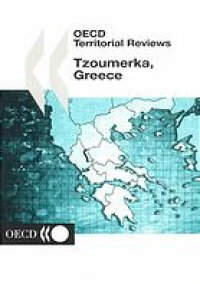- Tags: Canada -- Economic conditions -- 1991-, Canada -- Economic policy -- 1991-, Sustainable development -- Canada, Social planning -- Canada, Economic history, Economic policy, Social planning, Sustainable development, Canada
- Series: OECD territorial reviews.
- Year: 2002
- Publisher: OECD
- City: Canada, Paris, Canada.
- Language: English
-
pdf
OECD's Territorial Review of Canada. It finds that Canada is composed of three macroregions: a southern ribbon with all the important metropolitan areas, a zone of rural and non-metropolitan adjacent regions and a sub-continent of remote northern territories. Disparities between these macroregions persist and may even be growing. Opportunities for growth are lost because of these imbalances and also because specific regional advantages are not fully tapped. In many regions, weak local governance is hindering the emergence of local grass-roots projects, diffusion of R & D results to SMEs is slow and dialogue between higher education institutions and firms is poor. This report underlines the need for federal agencies and sectoral departments to continuously assess the consistency of their policies with regard to the three macroregions in order to enhance territorial cohesion and better tailor programmes to local conditions. More federal involvement in metropolitan issues notably through negotiated planning could help to institutionalise and strengthen urban policies. This report also emphasises the significant overhauling of rural policies that took place recently. It underlines that in certain areas such as amenities a strategic approach is still to be defined. Resolving governance issues is a priority in the north. Read more...
